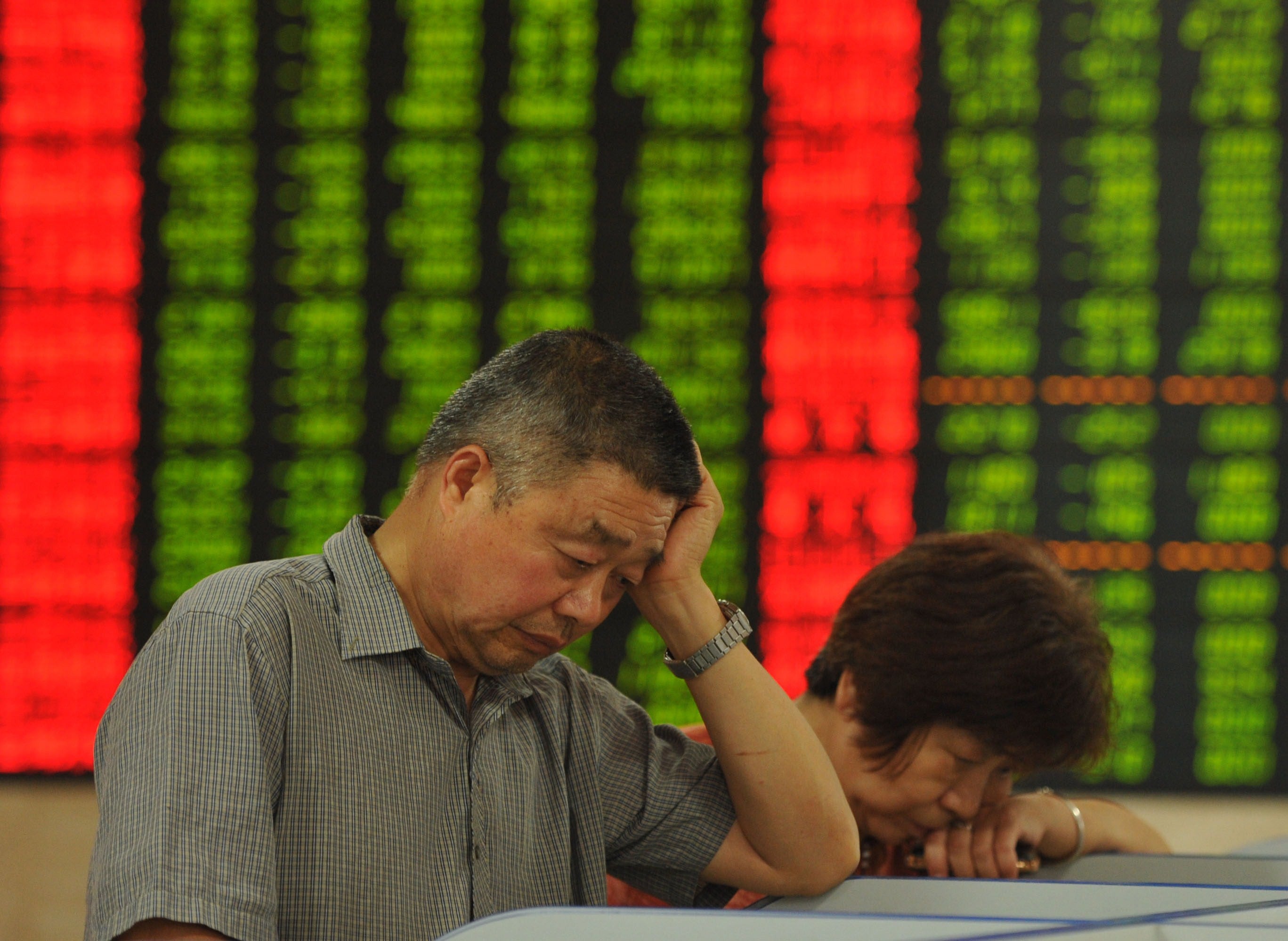This is what happens when humans are replaced by computers
Outlook: Increasingly the world's markets are governed not by human traders but by computers

Crash. Bang. Wallop. The crash? That was the Dow Jones Industrial Average, which opened the week 1,000 points lower than the level at which it had closed on Friday.
No, you didn’t misread that. Shortly after the opening bell it had fallen 1,000 points. The bang from that opening lasted just long enough to shake every market where stocks were being traded, before easing off like a summer rain shower.
The wallop? Well, there’s an awful lot of wallop to discuss, not least the remarkable scale of the “crash” and the remarkable speed at which the market regained much of the ground it had lost.
The febrile climate that led to the ructions was created by the fact that we might – might – be in the early stages of the second economic shock in less than a decade. The problems that have emerged with China’s economy (still want to move, HSBC?) are serious. And real. Given its importance, you would expect markets to take note.
But just how bad is the economic picture we’re confronted with? The Dow’s initial reaction spoke of a profound and immediate crisis: we were at Defcon 1, with the rats climbing over each other to get to the exits.
Less than an hour later, however, and things had shifted to something more like “really nasty”. We were down to Defcon 2, moving towards Defcon 3 and a situation classified as merely “nasty” by the time the sandwiches were being unwrapped before stocks lurched down again in late trade. What changed during the afternoon? Well, not much. No economic data of any great import had been released, no policymaker had said anything of great significance.
Now recall, if you will, the last so-called “flash crash”, which, we’re now told by the US authorities, was allegedly triggered by a bloke playing with a laptop in Hounslow.
Increasingly the world’s markets are governed not by human traders but by computers; sleek black boxes running frighteningly sophisticated algorithms that can produce effects that leave even their creators scratching their heads.
It is true that a situation like that which emerged at the start of this week would have given the Dow a case of the jitters in whatever era it occurred. Human traders would have followed the herd’s instincts and pressed their sell buttons, or called through their sell orders.
But among their number would always have been one or two contrarians doing the opposite, at least when it looked as if they could make a buck by screaming “buy, buy, buy”. The further prices fell, the more of them there would have been.
Computer algorithms don’t work like that, at least not yet. Episodes such as the Dow’s 1,000-point plunge, followed by its equally rapid reversal, are therefore becoming increasingly common.
Why is that a problem? Humans might no longer fully be in control of what’s happening, but they’re still a part of the mix. Events like 1,000-point falls in the Dow have the capacity to panic them, exacerbating the machines’ brutal logic and feeding more panic.
Other humans, those who make policy, see things like 1,000-point falls and are also inclined to panic, even those who understand what is going on an intellectual, if not an emotional, level.
It’s like pouring petrol on a fire. A fire that may very well burn people beyond those who those who sit in front of screens full of red text in the City if those policymakers get it wrong.
Osborne’s Lloyds sale nears the point of no returns
The world’s stock markets might be in full-scale retreat, but that didn’t stop the Chancellor, George Osborne, from boldly declaring that the sale of the taxpayer’s interest in Lloyds Banking Group would be completed within a year.
Mr Osborne spoke after it was revealed that the so-called “trading plan” of steadily releasing chunks of the bank into the market had reduced the Treasury’s holding by another 1 per cent to a shade below 13 per cent (12.97 per cent to be precise). The plan was launched at the end of last year, before being extended in June after successfully having raised £3.5bn for the coffers.
Despite the summer traditionally being a slow time for the market, there’s been no let up and more than £3bn more has come in. At a profit too.
The taxpayer therefore has cause to be happy, and so does the Chancellor, the Debt Management Office and UK Financial Investments, that little outpost of the City in Whitehall created with the aim of keeping the state’s banking holdings at arm’s length from the state.
The justification for UKFI’s existence has been questioned by people ranging from your columnist to Andrew Tyrie’s Treasury Select Committee. The success of its trading plan, however, could be seen as its riposte to that criticism.
But with Mr Osborne having pledged that Lloyds shares would not be sold for less than the 73.6p at which the state bought in (at least through the trading plan), it’s now time for a pause.
They’ve just closed perilously close to that level. Further disposals will therefore have to be put on hold. As for the retail sale – which means involving you and me in the process – promised in the run-up to the general election and barely mentioned since? It was always a silly idea and with share prices mired in red there’s unlikely to be much demand for it.
If the worthies at UKFI truly want to earn their money they might want to suggest that their boss sticks with their trading plan, at least when markets allow them to heat it up again.
Join our commenting forum
Join thought-provoking conversations, follow other Independent readers and see their replies
Comments
Bookmark popover
Removed from bookmarks